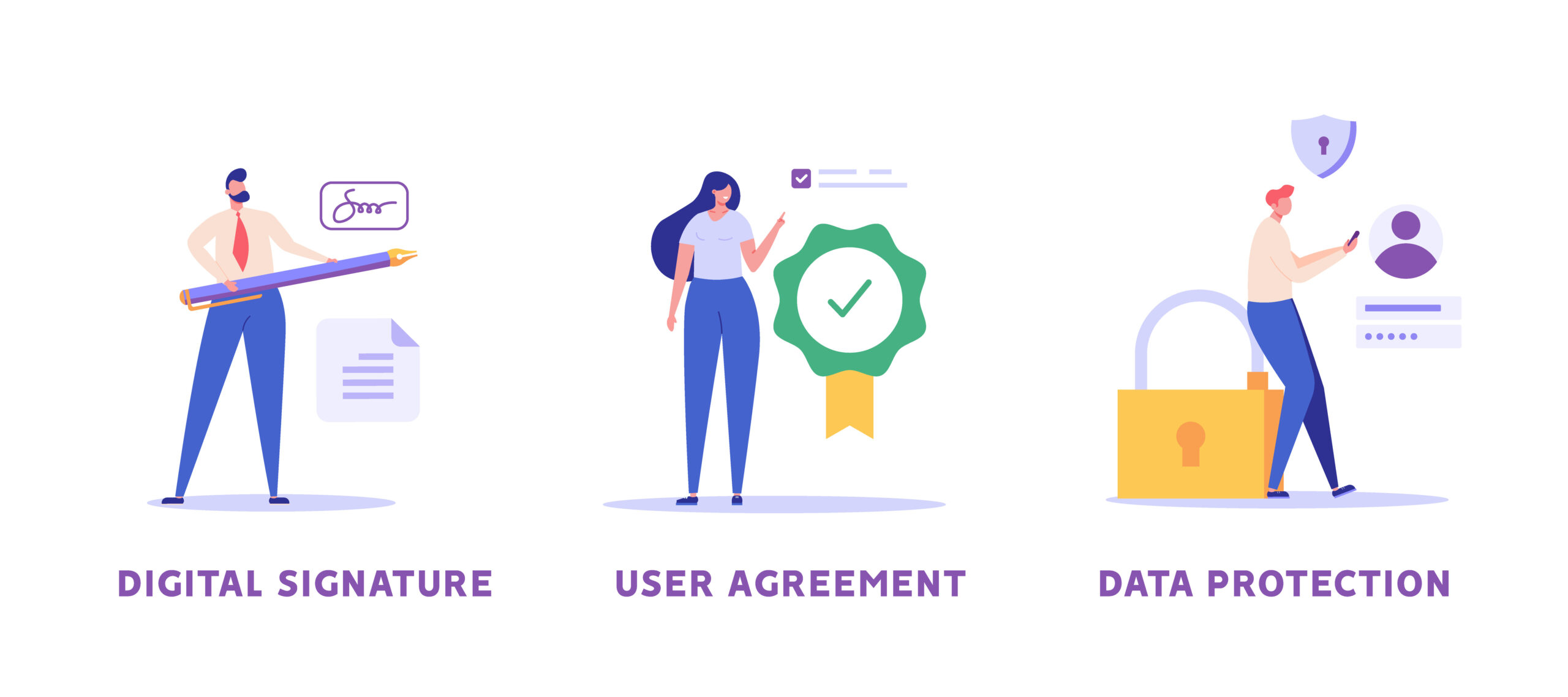Estimated reading time: 5 minutes
The modern world’s technology has altered the way the world does business. It has profoundly transformed operations, such as marketing, supply chain management, and end-user delivery. But one feature has remained influential throughout the transition from paper to computer: the signature.
Electronic signatures (e-signatures), which demonstrate a person’s agreement to a contract, are not new. For many years, numerous countries worldwide have accepted and used them. Over a billion people around the world feel at ease signing documents electronically. However, is it legal to use e-signatures?
In simple terms, e-signatures are legally enforceable. They have the same binding effect as their written counterparts as long as certain conditions are met. They are also much more secure than traditional paper-based signatures, making them less subject to forgery. In fact, e-signature companies, like jSign, ensure proper use of your data.
But how do you know whether it’s appropriate to use e-signatures or when it’s legally binding? Here’s all you need to know about electronic signatures:
E-Signatures Are Valid If All Parties Agree To Sign Digitally
The United States federal government passed the Electronic Signatures in Global and National Commerce Act (ESIGN) in 2000. It, along with the Uniform Electronic Transactions Act (UETA), confirms electronic signatures are legally valid documents if all parties decide to sign electronically.
In addition to this, keep the following factors in mind when determining whether an e-signature is lawfully acceptable:
- Both parties must approve the digital signature. Consent can be circumstantial in a B2B situation, but it must be explicit in a consumer context.
- The software used to create the signature must record the process of creating the signature.
- Electronic signature records must be kept and reproduced accurately when needed.
Remember that this does not offer electronic signatures any extra credibility or weight. An electronically signed document will be subjected to the same scrutiny as its paper equivalent in court.
E-Signatures Are Valid In All States And Most Countries Under Laws
Electronic signatures are recognized in all 50 states and have the same legal standing as handwritten signatures under state law. Also, they bear the same legal bearing and legal efficiency as handwritten signatures and paper documents in most modern countries. Because laws vary per region, e-signature rules exist to secure you and your business partners while doing business beyond international borders.
When comparing e-signature laws from around the world, you’ll notice that they often come into three types: minimalist, prescriptive, and two-tier.
- Minimalist – With minor exceptions, these regulations make electronic signatures enforceable in almost every situation. Minimalist rules give the highest level of protection for everyone engaged and are more widely applicable than other types of e-signature regulations. The United States, Canada, Australia, and New Zealand have minimalist electronic signature rules.
- Prescriptive – Prescriptive rules are the most rigorous form of e-signature laws and the hardest to comply with if the proper technology is not used. This is due to the fact that there are precise guidelines for creating and signing agreements online. Prescriptive rules are only implemented in a few nations, including Brazil, India, Israel, and Malaysia.
- Two-Tier – Two-tiered laws, a combination of minimalist and prescriptive legislation, can be challenging to manage. Like minimalist laws, two-tier allows and accepts all electronic signatures for private agreements (as long as both parties agree). However, these regulations, like prescriptive laws, specify what methods and technologies must be employed for specific types of contracts. Many European countries, as well as China and South Korea, have two-tier e-signature regulations.
Any document requiring a signature is essential enough to protect by following legal rules, especially if one or more people are from other nations.

E-Signatures Are Only Valid In Certain Types Of Documents
Electronic papers and signatures are generally enforceable in industrialized countries worldwide for business and personal transactions. Many standard business papers that can be signed electronically are:
- Employee policy revisions, offer letters, and new hire papers
- Nondisclosure agreements, work statements, and sales contracts
- Purchase orders and master service agreements
- Transactions in real estate
- Account opening paperwork
- Applications for insurance policies and claims
- Forms for patient intake
However, as with anything in life, there are certain exceptions. Electronic signatures, according to the National Telecommunications and Information Administration (NTIA), are not legally acceptable when signing:
- Last wills and testamentary trusts
- Divorce, adoption, and other family law statutes that are governed by state
- Official court documents or court orders
- Notices of utility service termination
- Notices of default, foreclosure, or eviction for an individual’s primary residence
- Notices of cancellation for health or life insurance plans
- Recall warnings for products that pose a significant danger to health or safety
- Any document authorized by law for the movement of hazardous materials, insecticides, or other dangerous substances
Furthermore, you should always consult local jurisdiction about your specific e-signature use case.
Conclusion
As you can see, e-signatures are legally binding. As long as specific requirements are met, they have the same binding force as their written counterparts, and they are considered legally valid documents if all parties agree to sign digitally.
Share this content:
